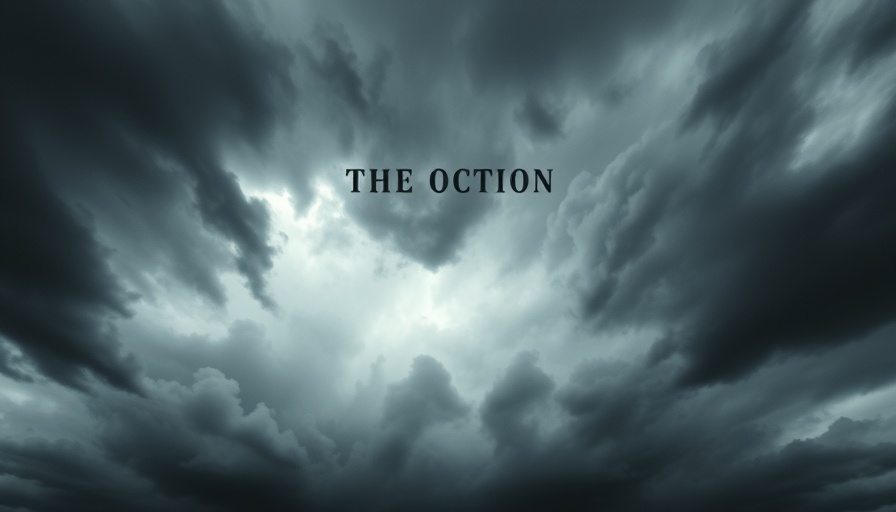
Facing the Unknown: The Psychology of Survival
Imagine yourself trapped in a smoke-filled airplane cabin, the ground rushing up to greet you. In moments like these, clarity in chaos is critical. Yet, research indicates that human reactions in emergencies often defy our expectations. In her insightful book, The Unthinkable: Who Survives When Disaster Strikes—and Why, Amanda Ripley dives deep into this topic, revealing that it's not just panic that kills: it’s often passivity. Survival in crises hinges on understanding how we react under pressure, and preparing ourselves for unpredictable emergencies can save lives.
Understanding the Myths of Panic
Contrary to popular belief, panic is not the leading cause of survival failure in crises. Ripley points out that in many situations, particularly during the tragic events of 9/11, people displayed remarkable calmness amidst chaos. It was the presence of a structured response – a mental checklist that helped individuals sort through their options – that led to survival. Therefore, the key takeaway is a proactive approach: being prepared is the best antidote to uncertainty.
Lessons from Real-Life Survivors
Engaging with survivors of various disasters has led Ripley to uncover valuable lessons about the human psyche. For instance, in interviews with those who made it out of the World Trade Center, many highlighted the importance of critical thinking and situational awareness as factors that influenced their decisions to act. This does not merely involve physical escape routes, but also an internal readiness to respond. The ability to assess risks and make rapid decisions can be honed by participating in emergency drills and practicing risk assessment.
The Importance of Preparation
“You should read the safety card!” Ripley emphasizes, revealing it as a seemingly insignificant habit that can drastically enhance one's preparedness during a flight. Familiarizing oneself with airplane safety protocols can demystify the fear associated with air travel and make survival action second nature. Think of it as a form of mental rehearsal. Whether flying across the country or attending a high-risk event, knowledge breeds confidence, allowing individuals to make life-saving decisions when seconds count.
Building Situational Awareness
Moreover, developing situational awareness is crucial beyond the realm of aviation. It serves as a lifetime skill that can enhance personal safety across various environments, from outdoor adventures to urban settings. Engaging with various scenarios can help refine your awareness and response capacity. One can practice situational awareness by actively assessing surroundings, which can drastically shift responses in emergencies and enhance overall safety.
Acting Heroically: The Call to Action
During emergencies, the responses of others greatly influence individual actions. Many hesitate to act due to fear of making the situation worse or the instinct to follow the crowd. However, emerging evidence suggests that promoting individual accountability can change the outcome. Ripley urges audiences to reject the bystander effect and instead cultivate a culture of courage. Whether it is taking the initiative to help a person in distress or guiding others through a crisis, each individual’s actions can serve as a beacon of hope and resilience.
Why Awareness Matters
Ultimately, the best preparation for any unexpected event lies in cultivating a mindset that embraces awareness and action. Not only can understanding survival psychology promote self-improvement, but it can also enhance one’s confidence in everyday scenarios. Explore more resources to enrich your knowledge, like articles on situational awareness and emergency preparedness, to further solidify your readiness. As men looking toward personal growth, the value of self-improvement extends beyond mere survival; it centers on being a dependable presence in times of crisis.
This discussion of survival psychology is not merely academic but profoundly practical. Each insight gained can contribute to personal growth, better decision-making, and an enhanced ability to confront life’s challenges. So, take charge of your knowledge and prepare yourself—who knows when the lessons learned could prove invaluable?
To learn more about enhancing your situational awareness and preparedness skills, subscribe to the podcast and delve into the resources mentioned. As we continue to examine these critical topics, let’s strive to be men who not only survive but thrive, distinguished by our ability to act decisively in the most demanding of circumstances.
 Add Row
Add Row  Add
Add 




Write A Comment